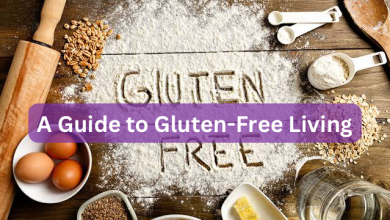Exploring Alternative Therapies for Stress Management

In our fast-paced modern lives, stress has become a common companion. Managing stress effectively is essential for maintaining our overall well-being and finding balance in our hectic routines. While traditional approaches to stress management like exercise and meditation are well-known, alternative therapies offer unique and holistic ways to alleviate stress and promote relaxation. In this blog post, we will explore some alternative therapies that can complement your stress management toolkit and help you nurture your well-being naturally.
1. Aromatherapy
Aromatherapy utilizes the power of scent to promote relaxation and reduce stress. Essential oils derived from plants are used in various ways, such as diffusing them in the air, applying them topically, or adding them to baths. Lavender, chamomile, bergamot, and ylang-ylang are examples of essential oils known for their calming properties. Experiment with different scents to find what works best for you and incorporate them into your daily routine.
2. Massage Therapy
Massage therapy is a hands-on technique that promotes relaxation and stress therapy by manipulating soft tissues in the body. It can help reduce muscle tension, improve blood circulation, and release endorphins, which are natural mood enhancers. Treat yourself to regular massages or consider self-massage techniques using tools like foam rollers or massage balls to target specific areas of tension.
3. Acupuncture
Acupuncture is an ancient Chinese practice that involves inserting thin needles into specific points on the body. It is believed to balance the body’s energy flow and promote overall well-being. Acupuncture has been shown to help reduce stress, anxiety, and promote relaxation. Consult with a licensed acupuncturist to explore this therapy and discover its potential benefits for stress management.
4. Herbal Remedies
Herbal remedies have been used for centuries to promote relaxation and reduce stress. Certain herbs, such as chamomile, lemon balm, passionflower, and valerian root, have calming properties and can be consumed as teas, tinctures, or supplements. However, it’s important to consult with a qualified herbalist or healthcare professional to ensure safety and proper dosage.
5. Mind-Body Practices
Mind-body practices, such as yoga, tai chi, and qigong, combine physical movements, breathwork, and mindfulness to promote relaxation and stress reduction. These practices help synchronize the mind and body, enhancing self-awareness and fostering a sense of inner calm. Explore different mind-body practices and find one that resonates with you, incorporating it into your routine for stress management.
6. Music Therapy
Although music has a known impact on our emotions and can be a powerful tool for stress relief. Listening to calming music or engaging in activities like playing an instrument or singing can help reduce stress, promote relaxation, and improve mood. Create personalized playlists of calming music or explore guided meditation tracks that incorporate soothing sounds.
7. Nature Therapy
Connecting with nature is a therapeutic way to reduce stress and enhance well-being. Spend time outside, go for walks in green spaces, practice mindfulness in nature, or engage in activities like gardening or forest bathing. Nature has a calming effect on our senses and can help alleviate stress, boost mood, and promote a sense of peace and tranquility.
Alternative therapies offer a diverse range of approaches to stress management, focusing on nurturing our well-being naturally. Remember that everyone’s response to these therapies may vary, so it’s essential to explore and discover what works best for you. Embrace the power of alternative therapies to encourage relaxation, find balance, and promote your overall well-being.







